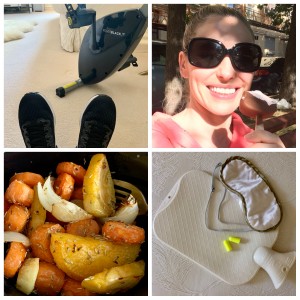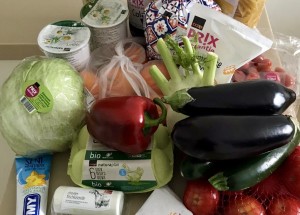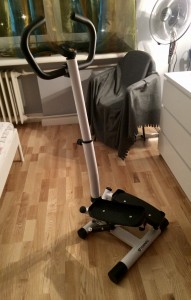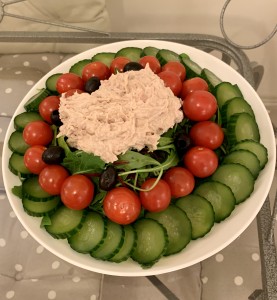Coronavirus has made millions of people around the world aware of the strengths and weaknesses of the body’s immune system. I can find no definitive scientific proof that you can boost it. But you can weaken it.

Reinforcing our defences: the classic healthy advice of regular exercise, relaxation, nutrition and sleep all help maintain the immune system
My brother’s a mechanic and compares the human body to a car: “If you put bad fuel in it, never put oil in it, never service it, never clean it, and run it constantly at 100 mph in third gear, you quickly wreck it.” Of course, he’s right. But thankfully some lifestyle changes can reinforce your body’s defences in this battle.
The immune system protects the body against disease and infection, and helps it recover after injuries. It’s powered by five litres of blood and a clear liquid called lymph that pass through the body, carrying elements like white blood cells that produce antibodies to fight foreign substances. Fever and inflammation are signs that your body is doing its job.
But research shows nature’s defence system can be compromised by some familiar bad habits: smoking; too much alcohol, caffeine, salt, sugar, stress and sunbathing; poor hygiene; and not enough sleep, fibre, green vegetables, exercise – and laughter. On the positive side, you could do yourself a wealth of good by turning these vices into virtues.
Let’s start with booze – and some sobering figures. A report by the Organisation for Economic Co-operation and Development (OECD) claims the average Briton drinks the equivalent of 108 bottles of wine a year – or 427 pints of beer.
Put in context, American health authorities define “binge drinking” as five or more drinks on a single occasion for men and four or more for women. Heavy drinking is 15 or more drinks per week for men and eight for women. So the UK is drinking itself to death, and annihilating its immune system en route.

Please drink responsibly: keeping alcohol consumption to a maximum of one or two drinks a night – yes, that low – is recommended to maintain normal immune response
Plus a fifth of the world’s population smokes. That’s over a billion people, and around 800 million of them men. In the UK, the figure is around 15 per cent of adults: over seven million people, with slightly more men than women. Tobacco smoke suppresses the body’s immune response and destroys antibodies, making it more susceptible to infections and diseases.
Then there’s caffeine. Your daily latte is fine, but too much coffee, tea and fizzy pop, especially late at night, can interfere with your sleep. And without your nightly seven-to-eight hours’ shut-eye, the body produces and releases fewer cytokines – proteins that target infection and inflammation.
Salt is also a culprit. Guidelines recommend a maximum adult daily intake of 2,300 mg – or about a teaspoon. Reading sodium levels on food labels makes you dimly aware that eating some processed and ready-made foods could all-but turn you into Lot’s wife.
Excess sugar also reduces the ability of immune cells to absorb bacteria. The American Heart Association recommends limiting additional sugar – including in food – to under nine teaspoons a day for men and six for women (or 36 and 24 grammes respectively). Around one in 10 Americans have diabetes. In the UK, it’s one in every 16.
If a person is also chronically stressed, hormone changes can affect bodily function over time and increase the risk of health problems. Finding personal methods of relaxation, from deep breathing to deep sea diving, are vital. While sunshine is key for producing vitamin D, but too much can temporarily damage one’s immunity and eventually lead to skin cancer.
As for bad hygiene, the virus has starkly highlighted just how vital it is to cover your face when you cough and sneeze (as well as polite), don’t touch your face, and regularly wash your hands – especially if you’ve been on public transport.

Back to nature: choose fresh wholesome foods instead of processed varieties to help effective functioning of the body’s defences
Then there’s the food we eat – or don’t. Research shows a higher intake of fibre, or roughage, supports a healthy immune system. In the UK, the daily recommended amount is 30 grammes for adults, with the current average at about 18. The nation spends almost £100 million a year on prescription laxatives. The cost of treating constipation in 2017/18 was the equivalent to funding 7,043 newly qualified nurses for a year.
Ditching processed food for whole food can be highly beneficial. Opt for more vegetables, fruit, oatmeal, whole grains, brown or wild rice, pulse pasta, beans, lentils, peas, chickpeas, nuts and seeds.
Specifically we must also eat more green vegetables. These provide key nutrients, including anti-inflammatory antioxidants, vitamins A and C, and folate. Greens also help power immunity in the gut, where 70-80 per cent of immune cells are located. The best green veggies include kale, spinach, broccoli, bok choy, cabbage and Brussels sprouts.
Other foods have long been promoted as immunity boosters. Although there are still relatively few studies of the effects of nutrition on the human immune system, these foods are undeniably full of beneficial vitamins and minerals.
Citrus fruits – such as grapefruit, oranges, tangerines, lemons, limes, clementines and papaya, as well as kiwis and red bell peppers – are high in vitamin C, which is thought to encourage white blood cell production. Aim for 200 milligrammes a day: one medium orange provides 70 mg, a grapefruit almost 90 mg, and a medium red bell pepper 150 mg.

The hot stepper: just one way to exercise while watching TV, listening to music, reading, chatting, childminding…
Vitamin E also plays a key role in immunity, so consider ditching sugary treats and snacking on almonds and sunflower seeds, while for those stuck indoors there’s some vitamin D in natural yoghurt. My favourite snack is half a bowl of yoghurt with a few almonds, hazelnuts, pine nuts, sunflower seeds, pumpkin seeds and a drizzle of natural honey.
The sick patients’ classic chicken soup is also high in vitamin B6 that helps produce red blood cells and could lift bad moods. While the beta carotene in carrots and sweet potatoes helps produce white blood cells.
Garlic, ginger, turmeric and pomegranate juice have long been associated with fighting infection and reducing inflammation. Antioxidants such as green tea and dried tart cherries also help keep the immune system ticking along, as does the zinc in shellfish and the selenium in Brazil nuts and sardines.
Aside from what we can eat, there’s also what we can do. Temporary self-isolation doesn’t have to mean endless joyless misery. There’s truth in the saying laughter is the best medicine, so chat to jolly friends and family or watch a comedy.
Laughter releases dopamine and other feel-good chemicals in the brain, all of which can help decrease stress. Twenty minutes of belly laughing a day could keep your immune system in tip-top order.
And, of course, regular exercise is a pillar of healthy living. It improves cardiovascular health, lowers blood pressure, helps control body weight, and protects against diseases – always fundamental but especially now. Just as importantly, exercise is a natural and effective treatment for anxiety. By releasing chemicals called endorphins, exercise relieves tension and stress, boosts physical and mental energy, and enhances the sense of well-being.
The NHS website has clear physical activity guidelines for adults aged 19 to 64 under the sub-heading “adults should do some type of physical activity every day. Any type of activity is good for you. The more you do the better.” Time to dig out those trainers from the back of the wardrobe.

We are what we eat: the multiple benefits of eating salads could help maintain a healthy immune system
Along with a healthy diet, exercise contributes to general good health and therefore a healthy immune system. It also promotes good circulation, which allows the substances of the immune system to move through the body and work efficiently.
This is essential as we get older, as the immune system’s capability reduces, resulting in more infections and diseases. There also seems to be a link between nutrition and immunity in the elderly, who are prone to “micronutrient malnutrition.” This occurs when a person is deficient in vitamins and minerals from their diet. Older people tend to eat less and often with less variety, and need to take particular care.
So instead of focusing on ‘boosting’ the immune system, perhaps think of your changed lifestyle in these unprecedented times as a time for unprecedented lifestyle change – with the benefits outlasting the outbreak.
We live in extraordinary times, but the guidelines for a healthy life haven’t changed: stop smoking; drink alcohol moderately; eat a diet rich in fruit and vegetables; exercise regularly; maintain a healthy weight; get enough sleep; minimise stress; and wash your hands. Under the global threat of coronavirus, this sage advice could not only save your life but those of many others.

Comments are closed.